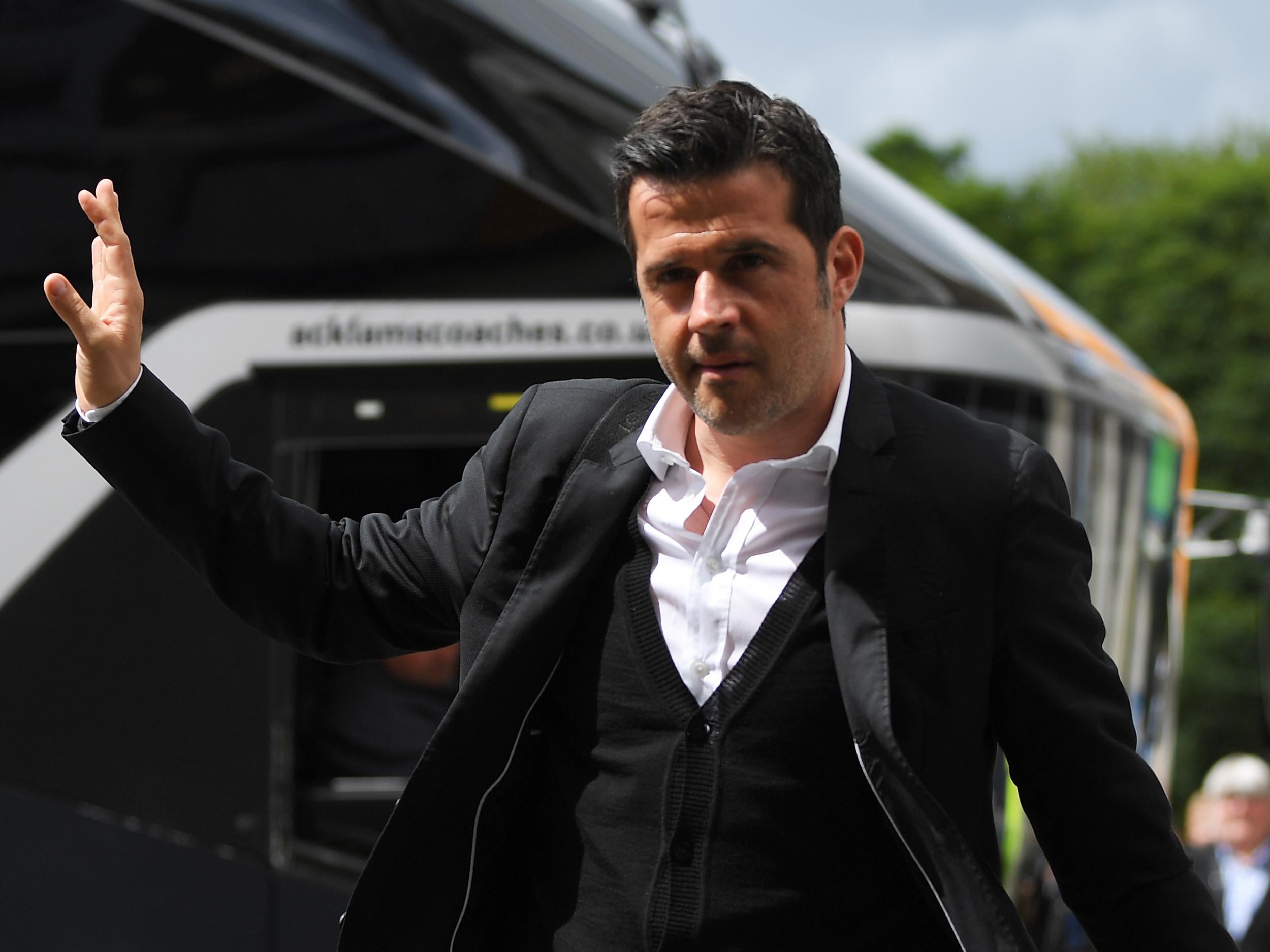Premier League clubs routinely spend millions on players - so why don't they do the same with managers?
The return on investment for appointing a good manager is huge and far more than clubs are currently willing to part with

After sacking Ronald Koeman last month, Everton eventually settled on Marco Silva as their preferred replacement. They offered Watford £10million in compensation for him, and said they would be willing to go much higher than that. But Watford did not want to negotiate at any price, and Everton have admitted defeat.
Not a triumph for Everton then, but at least they were barking up the right tree. They identified the right manager and were prepared to spend big to get him. Although in the context of spending £45million of Gylfi Sigurdsson, their opening offer was nowhere near enough for a signing who would surely contribute far more to the team than one player.
Contrast Everton’s stance with that of West Ham United, another club trying, at least in theory, to break into the top six. West Ham have an unusual aversion to paying off managers or buying them out from other sides. That is why they waited too long on sacking Slaven Bilic, because they did not want to pay him off in the summer. It is why they could not land a manager like David Wagner or Sean Dyche, who would have to be bought out of his contract for £3.5m. It is why they ended up with David Moyes.
Who could replace Ronald Koeman as Everton manager?
Show all 9West Ham are in the relegation zone, with nine points from 12 games, and it is extremely plausible that they could go down. That would be a financial disaster for the club, costing them tens of millions of pounds. Which makes their parsimony when it comes to spending money on managers even more irrational.
But West Ham are just an extreme example of a broader problem in English football: undervaluing the contribution of a good manager, and an ingrained unwillingess to spend proper money on hiring one.
Work done by football data analysts at 21st Club, who advise Premier League and Championship sides on strategy, shows that a good manager can add even more to a team than a good player. “We know that the best managerial hires have been worth in the region of 10 points a season to a team,” 21st Club’s head of football intelligence Omar Chaudhuri explains. “For players, you are usually looking at a top end of five or six points.” The obvious improvements Antonio Conte brought, first to Juventus and then to Chelsea , are the clearest example.
Clearly the combined value of what Silva contributed to Watford far outweighed the sum Everton offered for him. His presence at Vicarage Road gives Watford a very good chance of avoiding relegation which, given their 17th placed finish last year, was their top priority this season. Then there is the chance of a higher league finish, with an extra £2m in prize money for each position.
In financial terms, Silva has a high net present value to Watford, which is his ability to generate long-term cash flows for the club. He will increase asset value too, in terms of attracting better players to the club and improving them with his coaching. So the £10m Watford were offered for Silva represents only a fraction of his worth to the club. Watford always insisted that they never wanted to negotiate, but if Everton had offered what they paid Swansea for Sigurdsson, or more, it would at least have given Watford something to think about.
The return on investment for appointing a good manager is huge. The £2m Tottenham paid Southampton to buy Mauricio Pochettino out of his Southampton contract in 2014 will surely go down as the best £2m Daniel Levy has ever spent: that money has brought in far more in terms of increased Premier League prize money from two title challenges, two seasons of Champions League money, commercial revenue and increased player value. Kyle Walker would not have cost £53m, for example, without three seasons of Pochettino coaching behind him.
Given how cheap Pochettino was for Tottenham, the question is why managerial buyouts continually lag behind player prices. The answer is that clubs have less information on managers and too often make their decisions based on surface-level criteria, name recognition and personality matches. Their true fit for the job is much harder to establish.
“Players are a bit like listed stocks and shares,” Chaudhuri explains. “There is a lot of information about them in the market, so they tend to be efficiently priced. Compared to managers, they are more expensive, because you’re paying a premium on certainty. Managers are more akin to start-ups: the return can be bigger, but there’s more uncertainty about who can deliver that, so they’re cheaper.”
The way clubs recruit players has improved so much in the last few years, with more information being used and better decisions being reached. But until managerial recruitment smartens up, there will still be bargains out there for clubs who want to invest in a good coach. “Managers are priced too low because many clubs aren’t doing enough due diligence on managerial hires,” Chaudhuri says, “so they can’t gain the confidence they need to pay someone out of a contract.” The sooner clubs start spending on this what they spend on players, the better.
Subscribe to Independent Premium to bookmark this article
Want to bookmark your favourite articles and stories to read or reference later? Start your Independent Premium subscription today.

Join our commenting forum
Join thought-provoking conversations, follow other Independent readers and see their replies